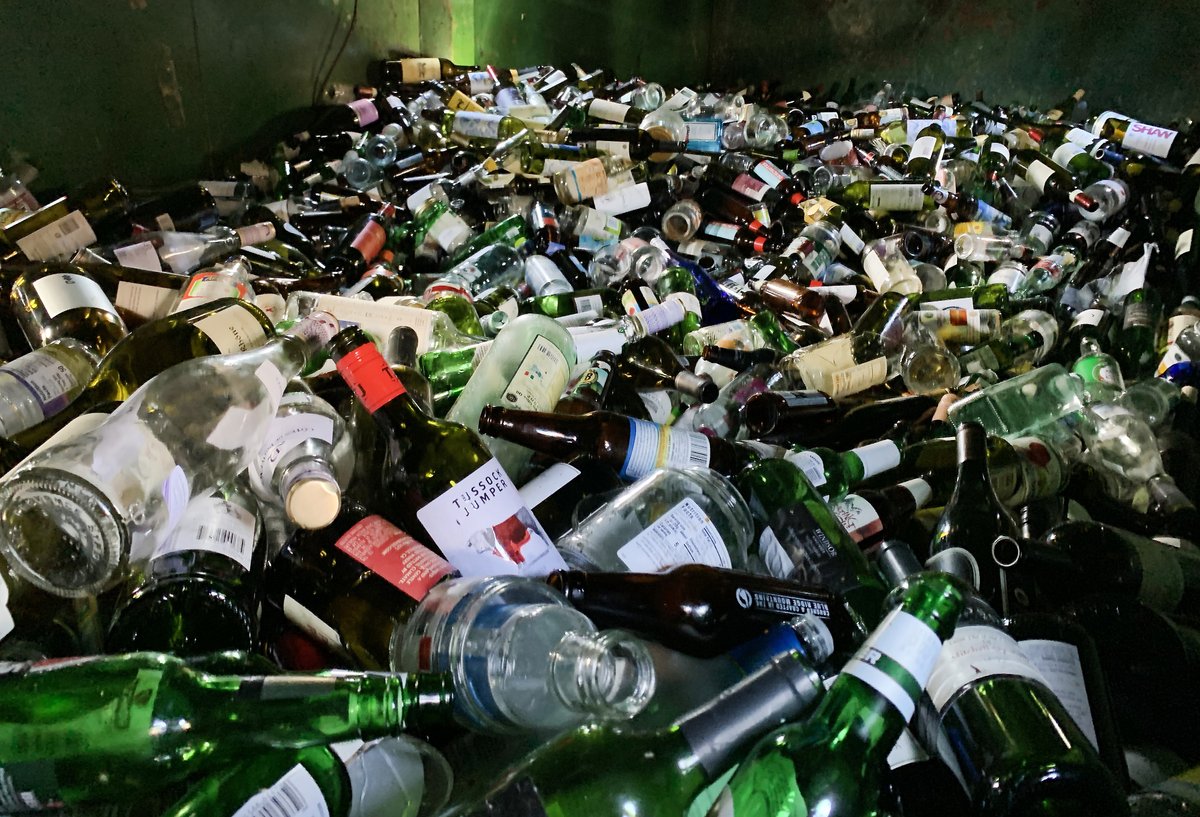
It’s been a turbulent couple of years for U.S. distillers.
Starting in 2018 they became collateral damage in then-President Trump’s trade wars, with the EU levying a 25% tariff on U.S. whiskey in retaliation for new duties on imported steel and aluminum bloomberg.com/opinion/articl…
Starting in 2018 they became collateral damage in then-President Trump’s trade wars, with the EU levying a 25% tariff on U.S. whiskey in retaliation for new duties on imported steel and aluminum bloomberg.com/opinion/articl…
“We’ve been a casualty of a very challenging trade war,” said the CEO of Brown-Forman, the distiller of:
🥃Jack Daniels
🥃Woodford Reserve
🥃Old Forester
Not to mention a pandemic that shut down bars. Must have been a tough stretch, right? Well ...
bloomberg.com/opinion/articl…
🥃Jack Daniels
🥃Woodford Reserve
🥃Old Forester
Not to mention a pandemic that shut down bars. Must have been a tough stretch, right? Well ...
bloomberg.com/opinion/articl…

It’s not as if the trade wars haven’t hurt.
📉U.S. exports of distilled spirits are down $523 million
📉Imports are down $569 million
bloomberg.com/opinion/articl…
📉U.S. exports of distilled spirits are down $523 million
📉Imports are down $569 million
bloomberg.com/opinion/articl…

The pandemic has exacted its toll too.
Sales of Jack Daniels, a standby of bartenders in the U.S. and many other parts of the world, are still down “high-single digits” versus a year earlier bloomberg.com/opinion/articl…
Sales of Jack Daniels, a standby of bartenders in the U.S. and many other parts of the world, are still down “high-single digits” versus a year earlier bloomberg.com/opinion/articl…

But for the U.S. liquor industry as a whole, supplier revenues were up 7.7% in 2020, the biggest percentage increase in 18 years and the biggest dollar increase on record.
The pandemic apparently drove a lot of people to drink the hard stuff bloomberg.com/opinion/articl…
The pandemic apparently drove a lot of people to drink the hard stuff bloomberg.com/opinion/articl…

Restaurant and bar closures did bring alcoholic beverage sales down in the spring, but in summer some states changed liquor laws to allow them to sell drinks to go, which led to a partial recovery bloomberg.com/opinion/articl… 

There was also a shift in which kinds of drinks were selling:
🍷Liquor sales rose faster than those of beer and wine
🥃Tequila and brandy saw bigger gains than whiskey and vodka
🍸 The fastest-growing category of all was pre-mixed cocktails bloomberg.com/opinion/articl…
🍷Liquor sales rose faster than those of beer and wine
🥃Tequila and brandy saw bigger gains than whiskey and vodka
🍸 The fastest-growing category of all was pre-mixed cocktails bloomberg.com/opinion/articl…

The renaissance of American bourbon and rye in recent years helped drive a 75% increase in U.S. spirits exports over the decade ending in 2018, while imports were up 49%.
U.S. distilleries have also seen employment rise 141% over the past decade bloomberg.com/opinion/articl…
U.S. distilleries have also seen employment rise 141% over the past decade bloomberg.com/opinion/articl…

That said, many of us drank way too much last year and have cut back sharply on consumption since.
After that historic increase in U.S. liquor sales in 2020, this may be the year of the hangover bloomberg.com/opinion/articl…
After that historic increase in U.S. liquor sales in 2020, this may be the year of the hangover bloomberg.com/opinion/articl…

Since the turn of the millennium beer consumption has kept falling, but the whiskey and cocktails revival and the continued growth of wine drinking has led to a modest increase in overall alcohol consumption bloomberg.com/opinion/articl… 

In the mid-1800s, some estimates put per-capita consumption at a staggering 7.1 gallons of ethanol in 1830 and 5.8 in 1790, presumably almost entirely spirits.
So we definitely could drink a lot more liquor than we do now bloomberg.com/opinion/articl…
So we definitely could drink a lot more liquor than we do now bloomberg.com/opinion/articl…

Should we, though?
Annual deaths from underlying causes involving “alcohol” doubled from 19,180 in 1999 to 38,589 in 2019, with the rate per 100,000 population going from 6.9 to 11.8 bloomberg.com/opinion/articl…
Annual deaths from underlying causes involving “alcohol” doubled from 19,180 in 1999 to 38,589 in 2019, with the rate per 100,000 population going from 6.9 to 11.8 bloomberg.com/opinion/articl…

Most of these deaths aren’t people having a few sips of Woodford Reserve in the evening.
But it makes one wonder if, after a pandemic binge, this country might be due for another of its periodic reckonings about alcohol bloomberg.com/opinion/articl…
But it makes one wonder if, after a pandemic binge, this country might be due for another of its periodic reckonings about alcohol bloomberg.com/opinion/articl…

• • •
Missing some Tweet in this thread? You can try to
force a refresh














